It struck me, recently, that my oft-repeated (to myself, at least) belief that I am not really that into the whole autobio comics scene was utterly flawed. Despite proudly proclaiming this for a number of years while announcing that Eddie Campbell’s Alec — autobio in all but name, literally; it’s well-known that the series presents barely fictionalized versions of Campbell’s true-life tales, with names changed to protect the innocent, guilty and everyone in between — was the exception that proved the rule, I have been forced to accept that it’s simply not true. What I’m really not that into, it seems, are bad autobio comics.
Wait, What? Ep. 199: Panthers of a Sort
- May 1, 2016
- Tagged as: 4 Kids Walk Into a Bank, Amazing Spider-Man, Batman, Bill Sienkiewicz, Black Panther, Brecht Evens, Captain America, Captain America: Civil War, Criminal, Dan Slott, Daniel Acuna, DC, Ed Brubaker, Flash, Frank Miller, Geoff Johns, Giuseppe Camuncoli, Graeme, Grant Morrison, Jeff, Marvel Unlimited, Nick Spencer, Podcast, reviews, Sean Phillips, Ta-Nehisi Coates, The Panther, Wait What?
0:00-10:45: Greetings! And a slow burn of a greeting it is, too, what with Graeme actively (actively!) asking questions about Jeff’s storage space moving plans. And then a discussion of media mail?! Are you kidding me?? Just how lucky are you, you guys? It’s almost impossible to gauge.
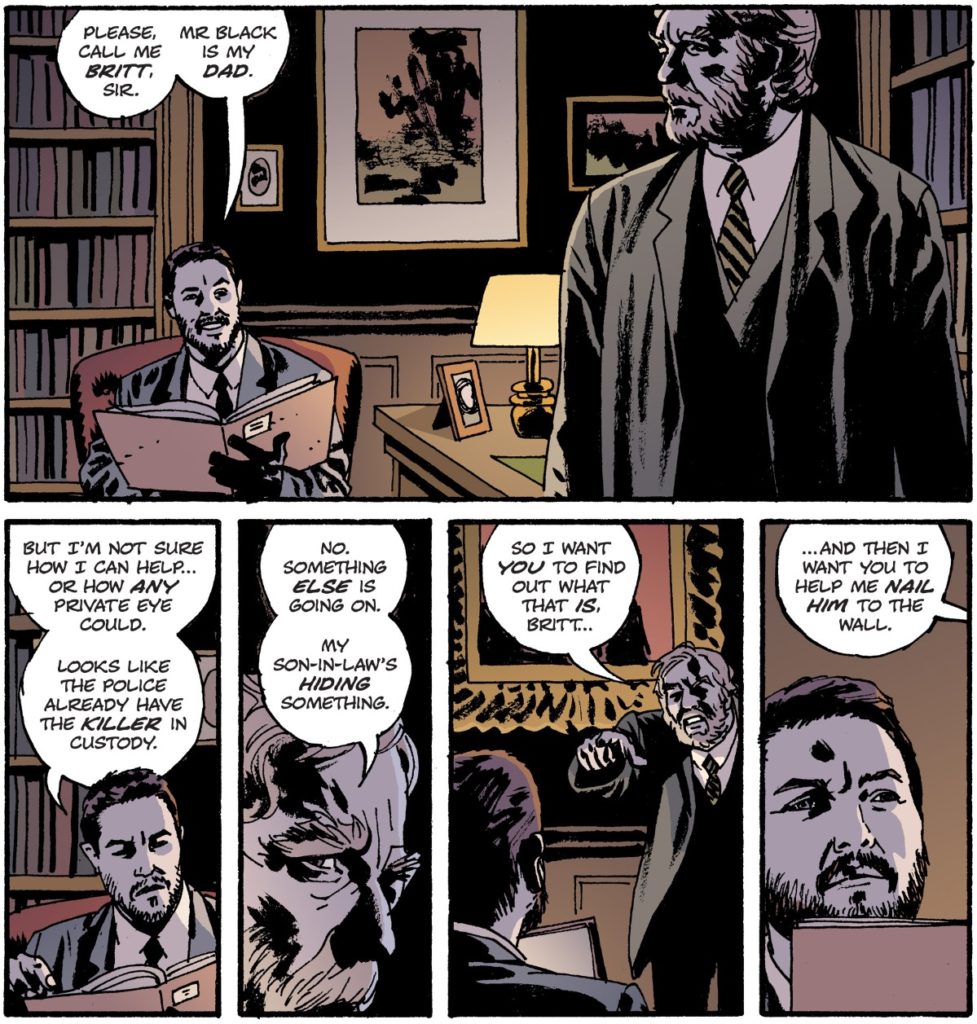 1:34:37-1:40:06: Other things Jeff re-read and enjoyed: two collections of Brubaker’s and Phillips’ (and Staples’ and Breitweiser’s) ’ Criminal: Bad Night and Last of the Innocent, while also checking out the recent 10th Anniversary Special Edition Magazine. Discussed: Archie, Encyclopedia Brown; Britt Black; Wil Wheaton; Matt Fraction; and more.
1:34:37-1:40:06: Other things Jeff re-read and enjoyed: two collections of Brubaker’s and Phillips’ (and Staples’ and Breitweiser’s) ’ Criminal: Bad Night and Last of the Innocent, while also checking out the recent 10th Anniversary Special Edition Magazine. Discussed: Archie, Encyclopedia Brown; Britt Black; Wil Wheaton; Matt Fraction; and more.There is, I think, a New Teen Titans issue where the framing device is a narrator asking “What do you do after the day after you’ve saved the world?” or something similar over and over again. As cloying as it seemed at the time, it did get over the idea of anti-climax involved in coming down from such a high, and the question (or something similar) was in my head over and over as I read the solo Captain Britain stories that followed Alan Moore’s run.
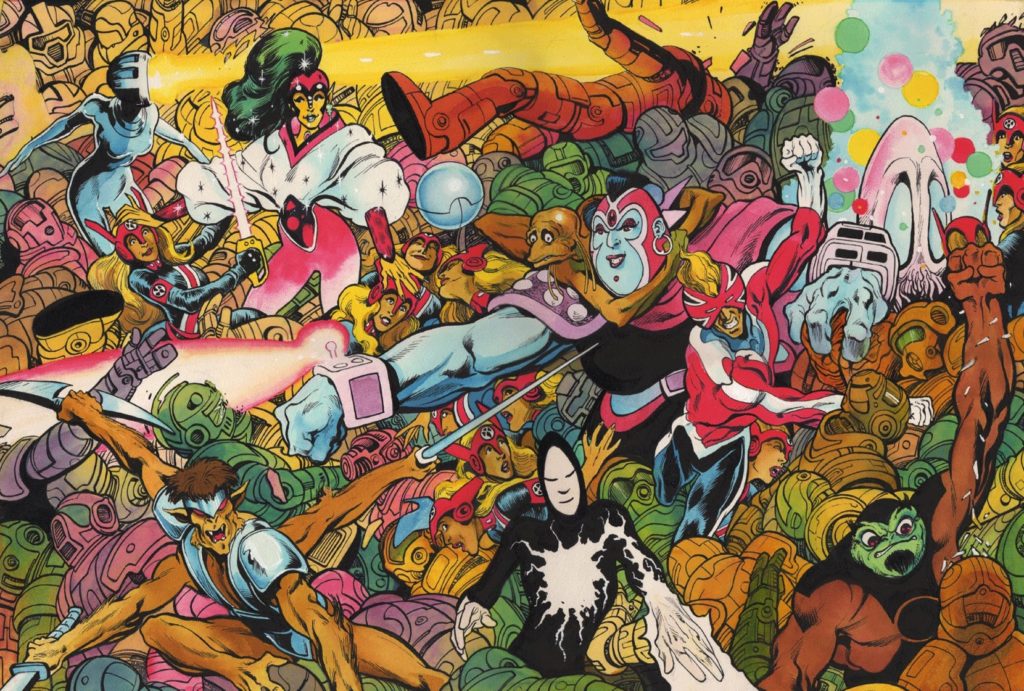
Don’t get me wrong; in many ways, I prefer much of the Jamie Delano and Alan Davis-written episodes to the Moore run, because it’s not as endlessly dour and grim; there are even happy moments in there, every now and then! But it’s also a run that feels as if it’s lost and wandering around in search of a reason to exist and a story to tell, as well as one where subplots are set up and then forgotten about for months before being rushed to a conclusion needlessly. (The return of police chief Dai Thomas, who’s figured out Captain Britain’s secret identity, literally disappears between the first and final issues of the second Captain Britain series, released thirteen months apart, and its resolution is essentially, “I figured out your secret identity.” “Oh. Okay, then.”) In other words, it’s a bit of a mess.
I’ve written before, I’m sure, about the cognitive dissonance in listening to the Beatles for the first time at any point after, say 1990-something; it’s not just that the work is “old” — although, let’s go with “classic,” that feels more respectful — but that it’s been entirely stripped for parts to the point where everything that once felt revolutionary or novel about it feels everyday or even tired; at best, you have a feeling of “That must have seemed amazing back then!”
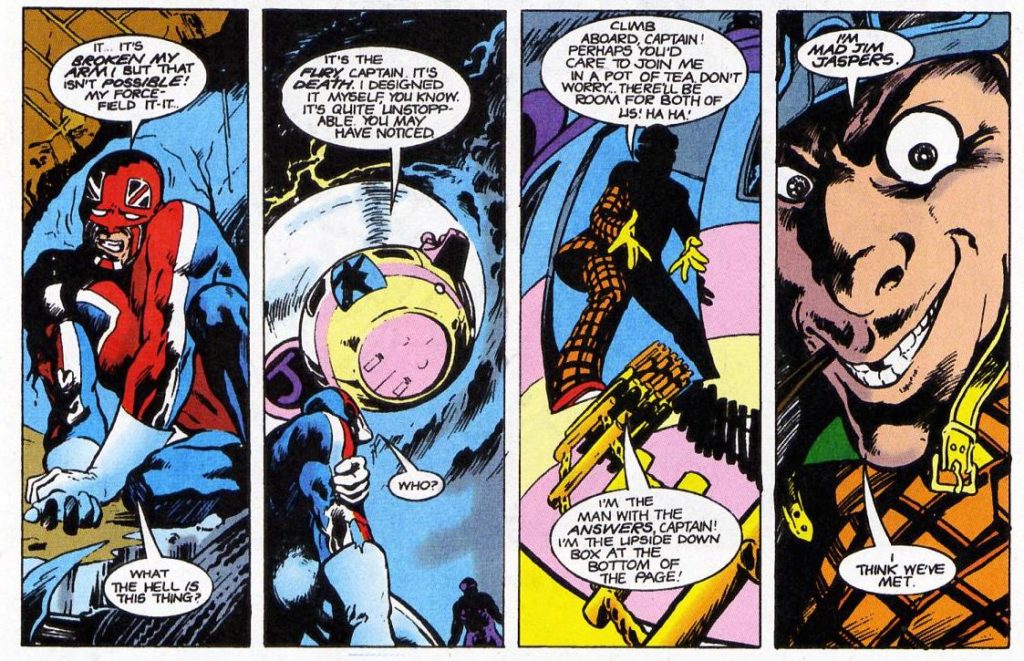
Re-reading Alan Moore’s Captain Britain evokes the same response; I’m sure that this all felt revelatory when it was being published back in the 1980s, but I can’t get through it today without thinking, “Oh, there’s a bit that feels like Grant Morrison told the language for Zenith, and that’s something that Mark Millar nicked for Saviour” and so on, and so on, and that’s even before considering the pieces of the mythology that Moore introduces that are similarly borrowed from other sources (Ever since I first read these stories in the mid-90s, I thought that this was in part a homage to DC’s multiverse, I admit).
Previously on Baxter Building: With #125, Fantastic Four permanently lost both of its creators. Yes, almost two years after Jack Kirby jumped ship, Stan Lee also moved on after proving that he really couldn’t bring the series back to its glory days by re-hashing old storylines and ideas. Now, it’s up to a new generation to try and live up to what’s gone before.. by re-hashing old storylines and ideas. We’re doomed, aren’t we?
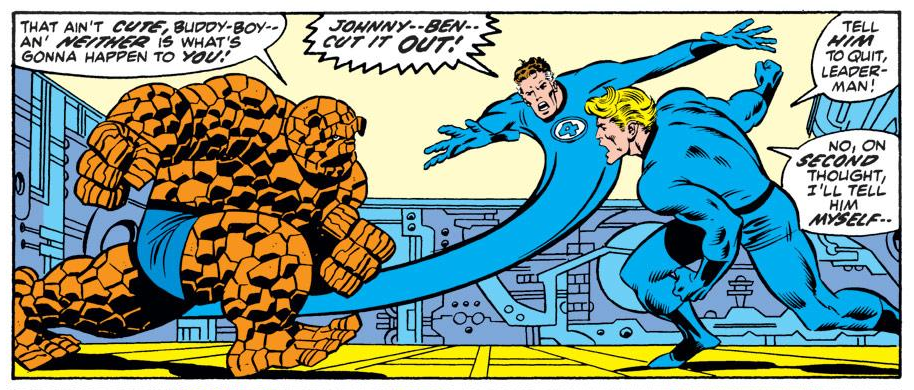
0:00:00-0:8:30: Jeff and I talk about the issues that we’re covering this episode — Fantastic Four #126-133 — and also express more than a little displeasure about the fact that this is actually the second time we’re having to record this episode, thanks to the technical difficulties that ate the first attempt. In fact, consider the non-“Happy Birthday” segment of this clip the unofficial theme song of the episode:
It would help if the issues were really good, but they’re not, and we talk about that as well: the ways in which we’re fully entering the era of “Fantastic Four as cover band,” and also why what would be our natural dismissive tendencies towards that is blunted by our own nostalgia for this stuff, having read it as kids.

0:08:31-0:20:30: Jeff references the Power Records audio version of FF #126 as we delve into the original version of the issue itself, which retells the origin of the team with some slight changes — such as John Buscema drawing the team as their contemporary selves, Roy Thomas retconning references in to comic book history and the insertion of a framing sequence that shows that all of the team have turned into insufferable dicks. Jeff blames Buscema for much of the insufferability, however, whereas I’m just not convinced that Thomas “gets” the interpersonal relationships between the characters. Jeff sings the praises of the professionalism of the issue and Roy Thomas’s “imaginary retcons,” but even he had to admit that the issue is “eugh, oof” to get through. Who says this isn’t the Mighty Marvel Age of Comics Criticism?
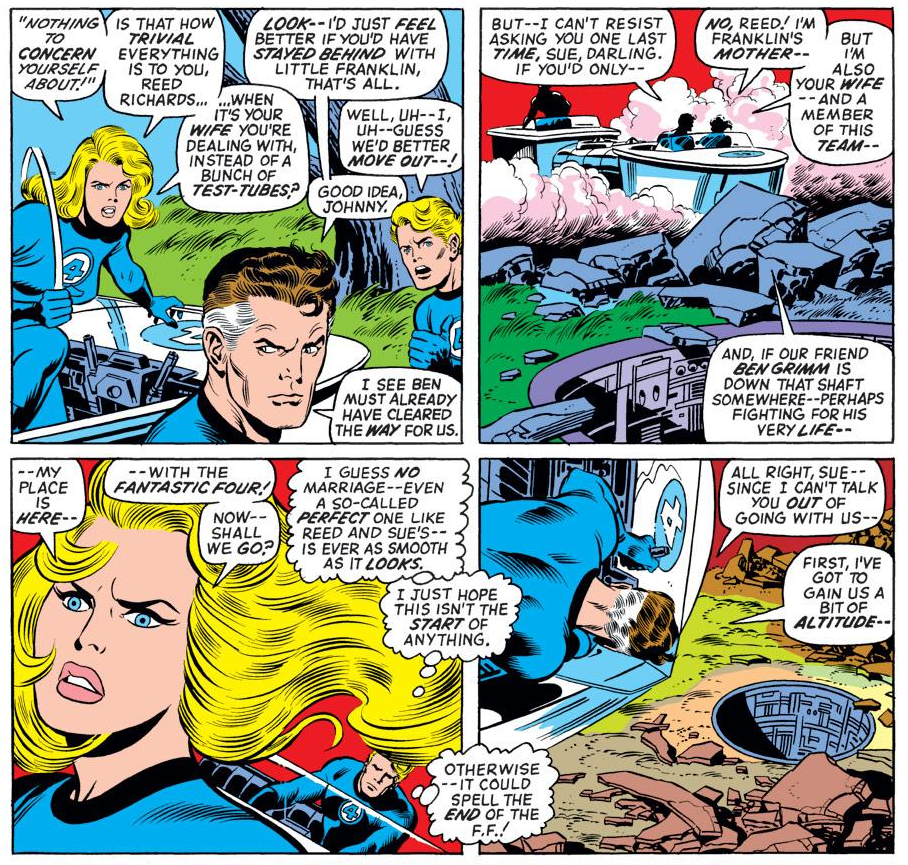
0:20:31-0:33:38: Fantastic Four #127-128 starts with a story named for a euphemism for the butt, which seems only appropriate for our discussion about Roy Thomas’ fragile masculinity. Finally, we get a storyline that deals with the important subject of why female equality might be a good thing in theory if only women weren’t such terrible shrews! On the one hand, we get excited about seeing Sue finally stand up to Reed’s horrific patriarchal attitude, but on the other, we bemoan the fact that it’s being handled by Roy Thomas, a man who seems to dislike the entire idea in the first place. To make matters worse, the plot of the story also demands that the Mole Man is a sap under the thumb of a femme fatale out for herself, because oh God. It’s not all Men’s Right Activism, however; there’s also a random supporting character who gets introduced and vanished in the space of a couple of pages, but Jeff has a theory about that which allows me the chance to do a really shitty pun. All this and a return for one of the lesser-loved elements of the Kirby days! It’s old school comics the way they just don’t make ’em anymore (which, really, might be a good thing, let’s be honest).
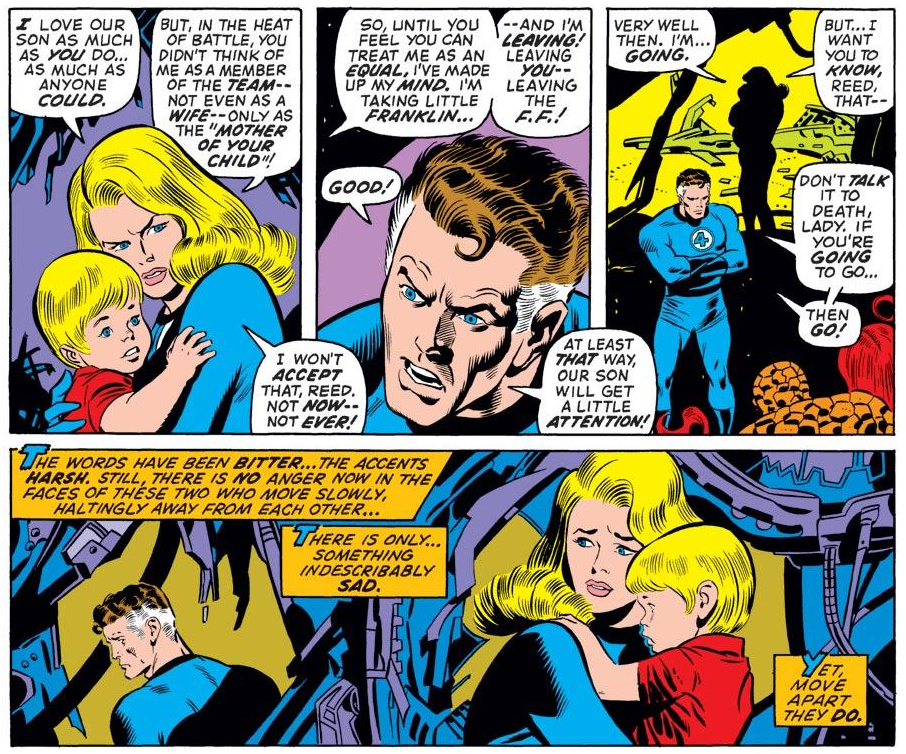
0:33:39-0:55:50: After bringing back the Mole Man, Fantastic Four #129-130 proves that the only way is up by reviving the Frightful Four, with a new hook for the team that appeals to both Jeff and I. (Spoiler: the words “schnooks” and “schlubs” are used to describe them.) It helps that we both dig the new fourth member of the team: Thundra, who once again proves that Roy Thomas is scared of women, even though her reverse chauvinism is actually kind of charming, somehow. But enough about the bad guys — let’s deal with the fact that these two issues manage to get rid of two members of the team. Does Thomas have a plan? Jeff suggests that maybe he does, arguing the case that Thomas is a smart guy, if perhaps a little too smart for the material at times. Meanwhile, I make the case that Thomas is actually a more sensitive writer than he lets on, thanks to the parting scene between Reed and Sue, although he manages to bury that elsewhere in these issues. Plus, John Buscema tries to do Kirby tech and causes a schism between Jeff and myself in the process, and a brief reminder that “Blackagar Boltagon” might be the best name in all of Marvel comics.
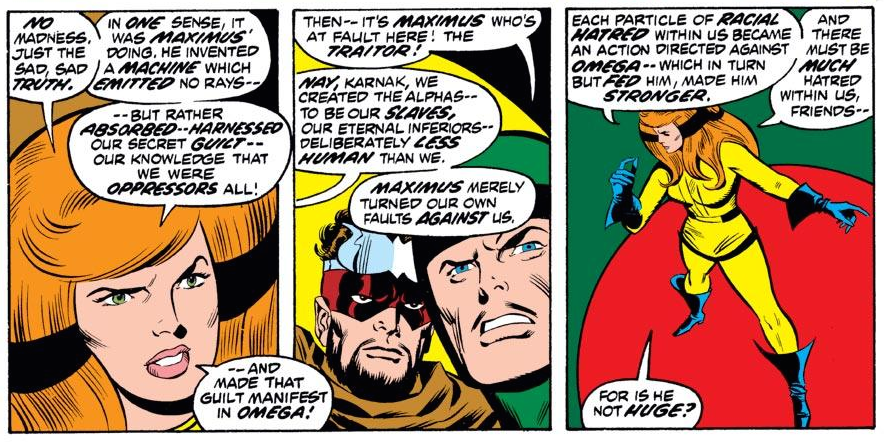
0:55:51-1:12:59: Going out with a bang — yes, these really are the final issues of his initial run — Roy Thomas brings his full-on “I have something important to say” message writing to FF #131-132, and the result is… a really strange couple of issues. Mixed in with the lurid soap operatics of Crystal choosing between Johnny and the newly introduced Quicksilver — giving us our chance to finally have our say about the Johnny/Crystal relationship, and Crystal as a character in general — is Thomas trying to say something important about man’s inhumanity to man (No pun intended), and… well, pretty much failing, thanks to his fondness for pulp tropes and language. Meanwhile, Mister Fantastic fails to change his costume, and Jeff and I disagree about the greater meaning of that, although Jeff’s version of events is probably more interesting than what I think Thomas intended. Let’s just file under “Well, there’ll be another issue along in a second,” shall we…?
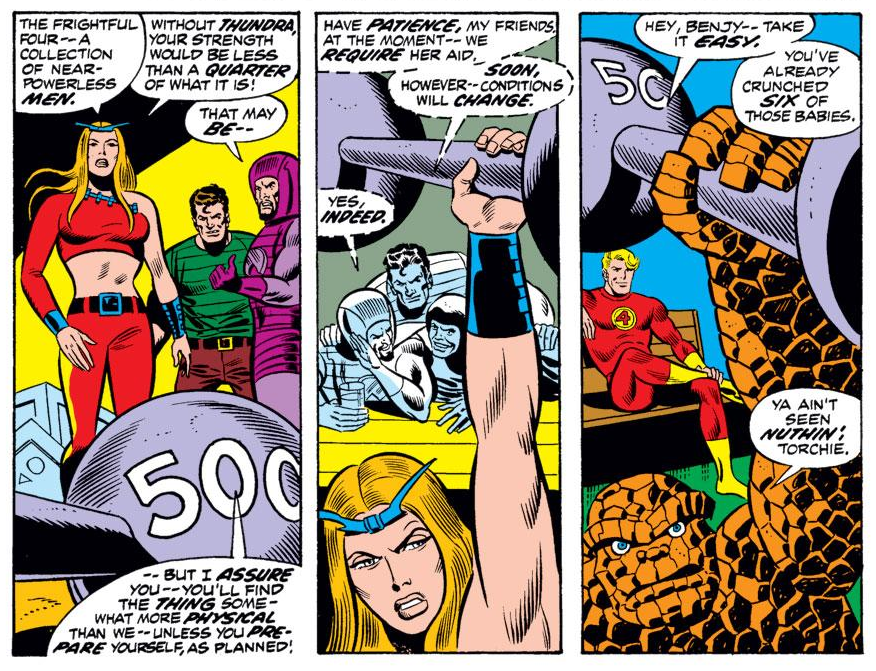
1:13:00-1:23:01: Jeff promises that Fantastic Four #133 has “an amazing change in the creative team,” but he’s not talking about the arrival of Gerry Conway as scripter — he means Ramona Fradon’s guest pencils, which are sadly buried and robbed of their charm by Joe Sinnott’s inks. (For those unfamiliar with Fradon, go here to see what her art normally looks like.) Meanwhile, the story (such as it is) brings Thundra back for a second and offers a fight of the century that not only doesn’t live up to its billing, it also barely takes place in the comic, with the rest of the issue being filler that we barely touched on because, I promise, there’s almost nothing there.
1:23:02-end: “There’s not a lot here,” I say when talking about the speed with which we got through these eight issues, and as we wrap things up — with me once again saying that there’s something authentically FF about these issues because I read them as a kid; I am all that’s wrong with comics — we look ahead to next episode, where we’ll be covering Fantastic Four #134-146, and remind you that you can find us on Twitter, Tumblr and Patreon, as ever. Next week: back to regular Wait, What?-ing, but until then, thank you for putting up with this delayed, brief episode, dear listeners.
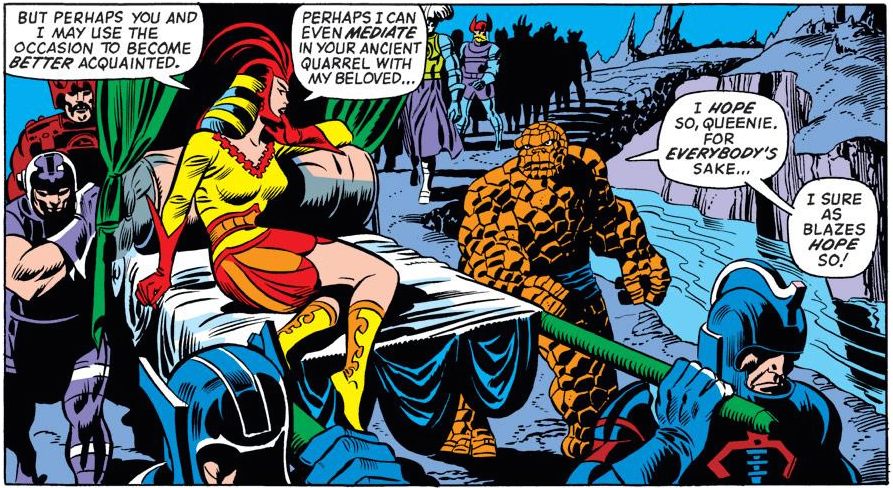
I’ve been thinking a lot about Garth Ennis lately, mostly as a result of writing like eleven billion words about him for our Preacher Roundtable. If there was one thing I took away from that roundtable, it was the mark Ennis’s comics had left on my brain was much larger than the comics themselves probably–after closer review–deserved. So it was fascinating to coincidentally see a creative team wrestling with that exact same issue. Thanks to a sale on Comixology, I bought and re-read Jason Aaron and Steve Dillon’s PunisherMax run. (I know I read it as it was coming out, but I don’t think I ever reread it in what Graeme calls “a oner” and the issues are somewhere in storage or a donation bin now, so this wasn’t a completely idiotic re-purchase.)
The takeaway from this media consumption is boiled down to a kinda listicle thing below, because I’ve been messing around with the ideas in this post for WAY longer than makes sense and can’t seem to get them to fully cohere. There are also SPOILERS for the full run, if that bothers you.
Continuing a re-read of Captain Britain comics, pre-Excalibur, which started back here.

If the first run of Captain Britain demonstrated ably that the Mighty Marvel Age of Comics couldn’t really come to grips with the British comics format — actually, to be fair, it demonstrated that the Marvel Age of Comics wasn’t that Mighty when left to lower-tier creators in general, but the pacing became a significant problem, especially in the series’ back half — the character’s second incarnation was something that many Marvel readers would’ve struggled to recognize in terms of format altogether.
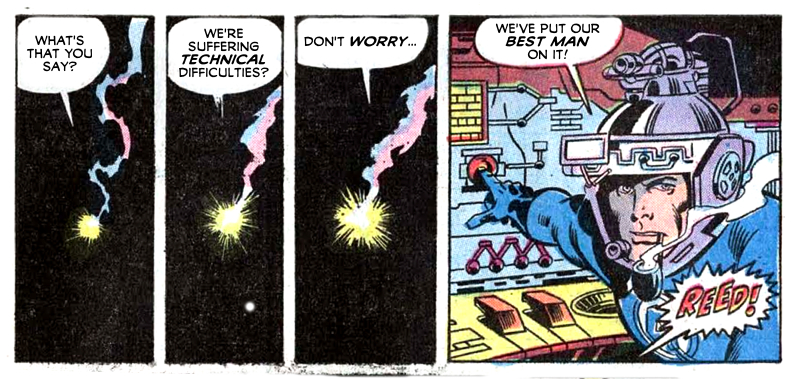
Previously on Baxter Building: Not so fast, dear Whatnauts — due to technical problems, what would be Baxter Building Ep. 16 is delayed until some mysterious, undefined point in the next week or so, meaning that you’ll have to wait a little while longer to learn about the obsession Jeff and I share about the end of Roy Thomas’ first marriage and how it feeds into his first run on Marvel’s First Family. In the meantime, here’s a brief glimpse of what lies ahead, performed by several individuals who might not have been the best voice actors in the country in the 1970s, but were almost certainly some of the cheapest.
Normal service will be resumed shortly, and we appreciate your patience (and apologize for inflicting the Power Records FF on you).
This is the third and final part of our roundtable discussion about Preacher, the Vertigo comic series that is somehow about to become a TV show! As such, it is a pretty terrible place to start, so let me point you at Part 1 and Part 2. And now we rejoin the conversation on me grappling with the fact that I work that I loved as a callow young man no longer has the same hold on me it once did (because I am apparently completely unfamiliar with the concept of “growing up”).
MATT: God, my ambivalence about this book that I supposedly love just grows and grows every time I contribute to this discussion.
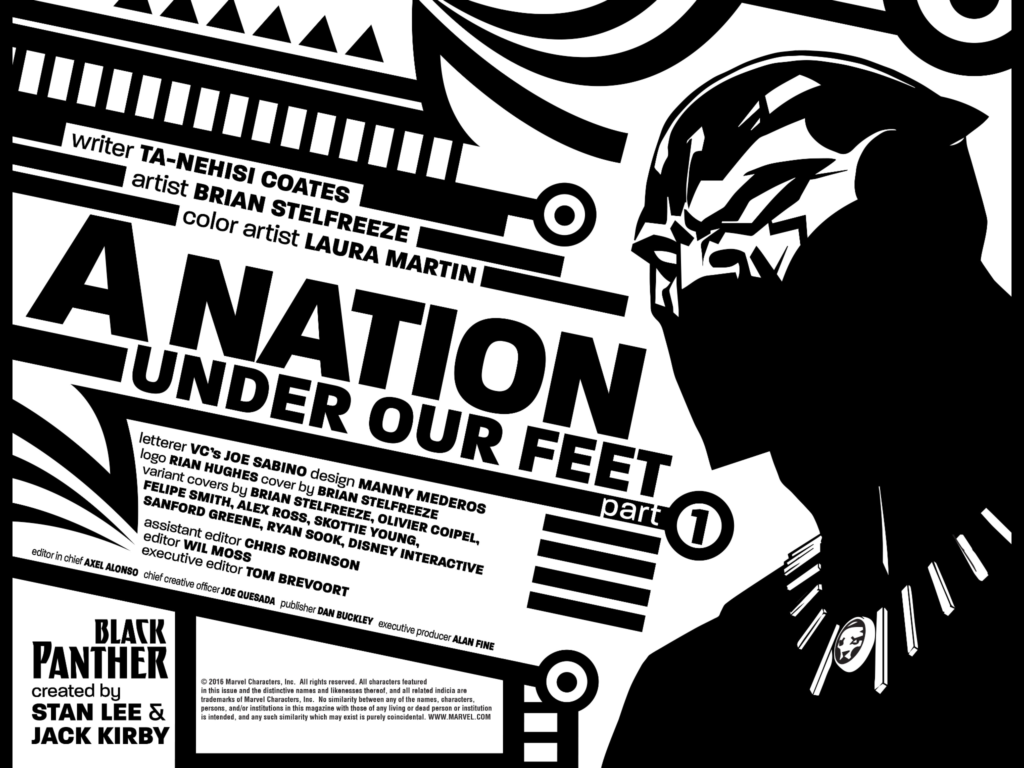
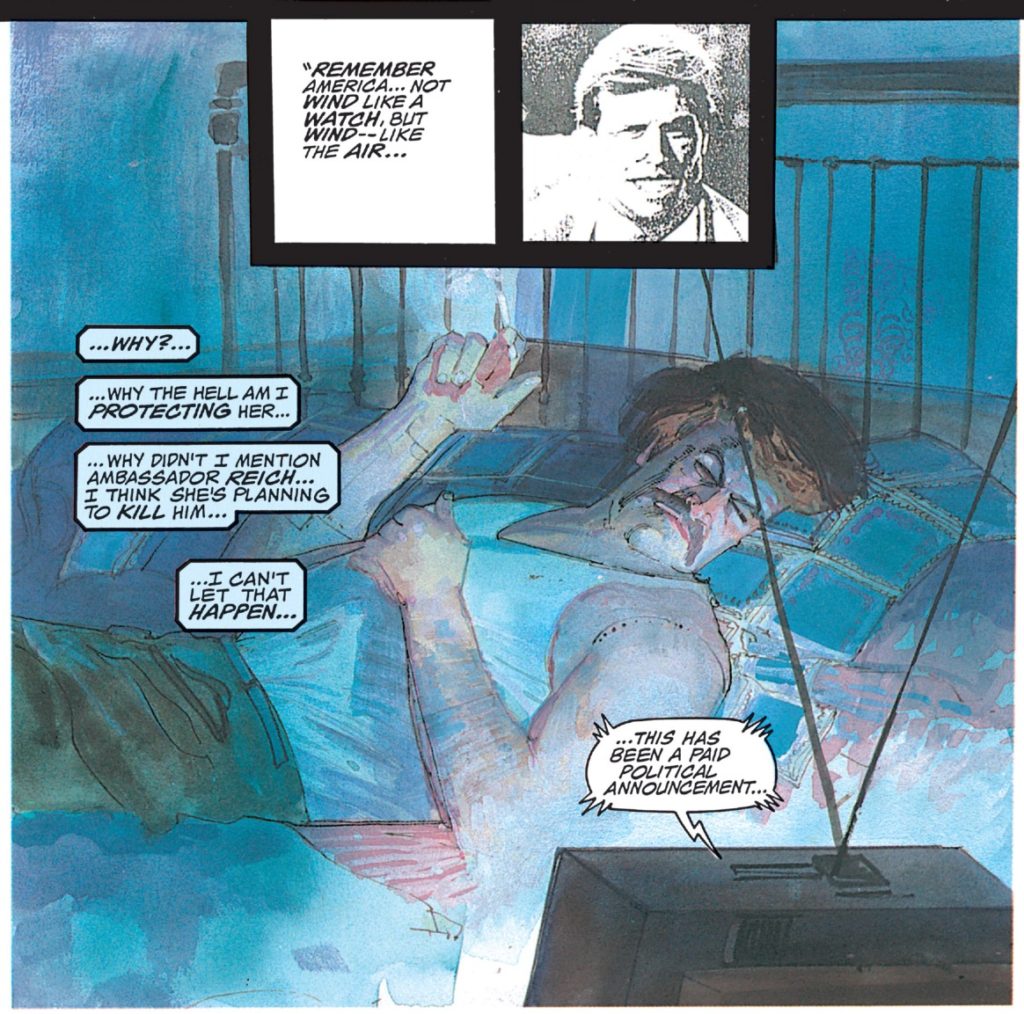
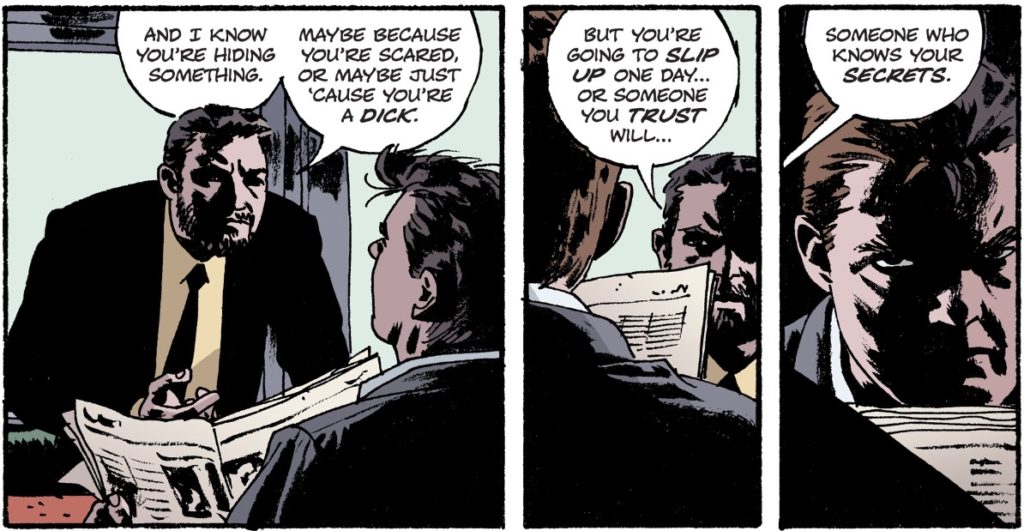
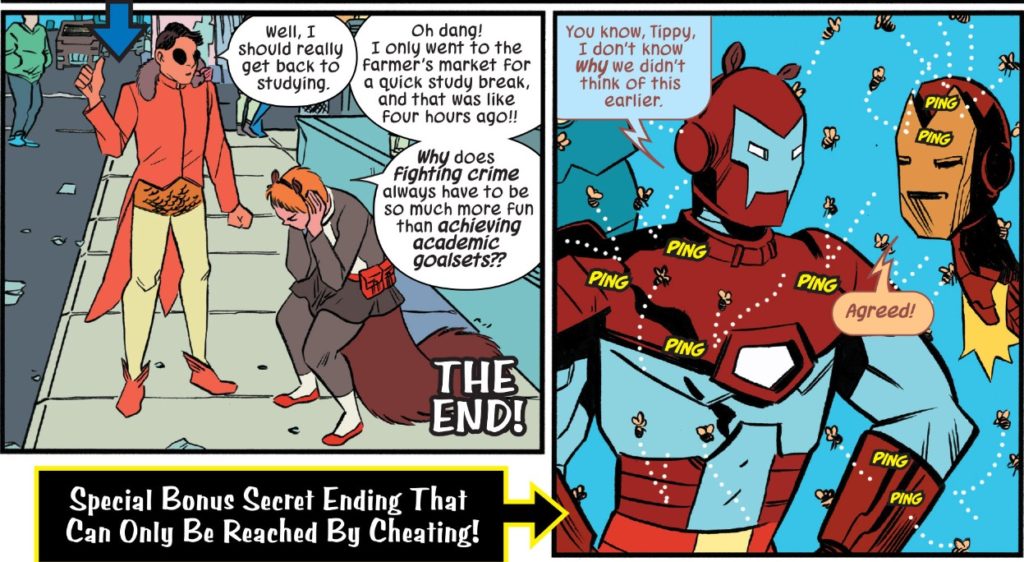
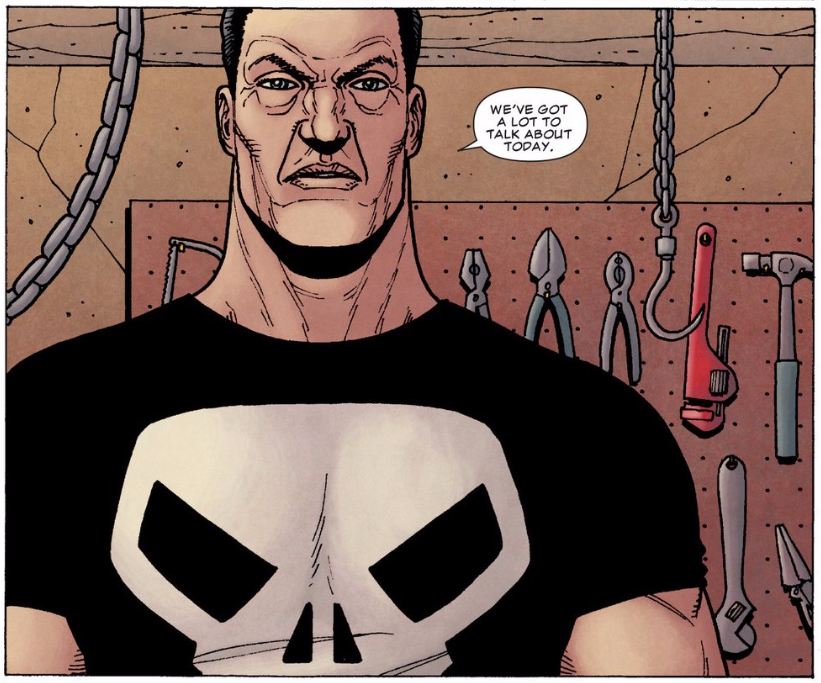
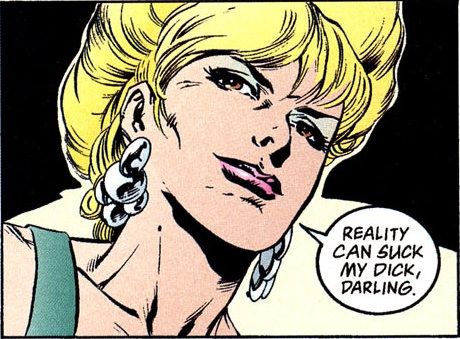
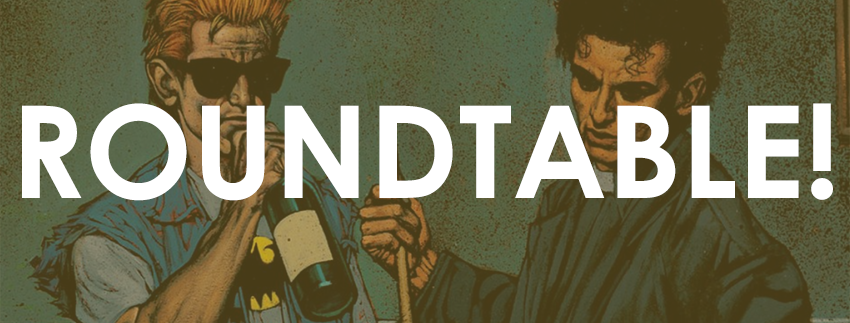


Recent Comments